Media | Articles
Smithology: A post about cars and Seinfeld
Last week, on this very site, your narrator was name-checked in a fun story by Hagerty’s European correspondent, Nik Berg. The core of that story was a digital conversation between Nik and a fashionable piece of chatbot software called ChatGPT.
Before we go any further, a confession:
This story has nothing to do with Seinfeld. It is instead riddled with silly poems.
A dirty trick, forgive me, but nothing makes the masses run screaming like scansion and meter. Plus, that photo was already in a folder on my desktop, and it made me laugh. Being published and read here is a privilege, I am truly grateful for your time, this won’t happen again, promise.
(Maybe.)
Marketplace
Buy and sell classics with confidence

Carrying on! Nik is a creative man. He asked the bot to write about bubble cars “in the style of Hagerty writer Sam Smith.” I was flattered. My name being what it is, however, the bot assumed Berg meant the top Google result, the Grammy-winning singer. So it composed a pop song about bubble cars.
Those lyrics read like bad poetry. The editor of this site, a long-suffering man named Eric, asked my thoughts.
“For the record,” I said, only lightly offended, “my poems are not this banal. They are way more stupid.”
Duly prompted, I began to write. Much as a chatbot would, distilling thoughts and prayers to language, except I interspersed all that keyboard-smacky word-Tetris with the kind of unpredictable and crucial behavior that has long seasoned human endeavor. Pausing to yell nonsense at a particularly saucy bird outside my office, for example, or taking a few moments to wonder if my children will grow to be circus folk, or simply walking into the kitchen to inhale a box of Girl Scout cookies.
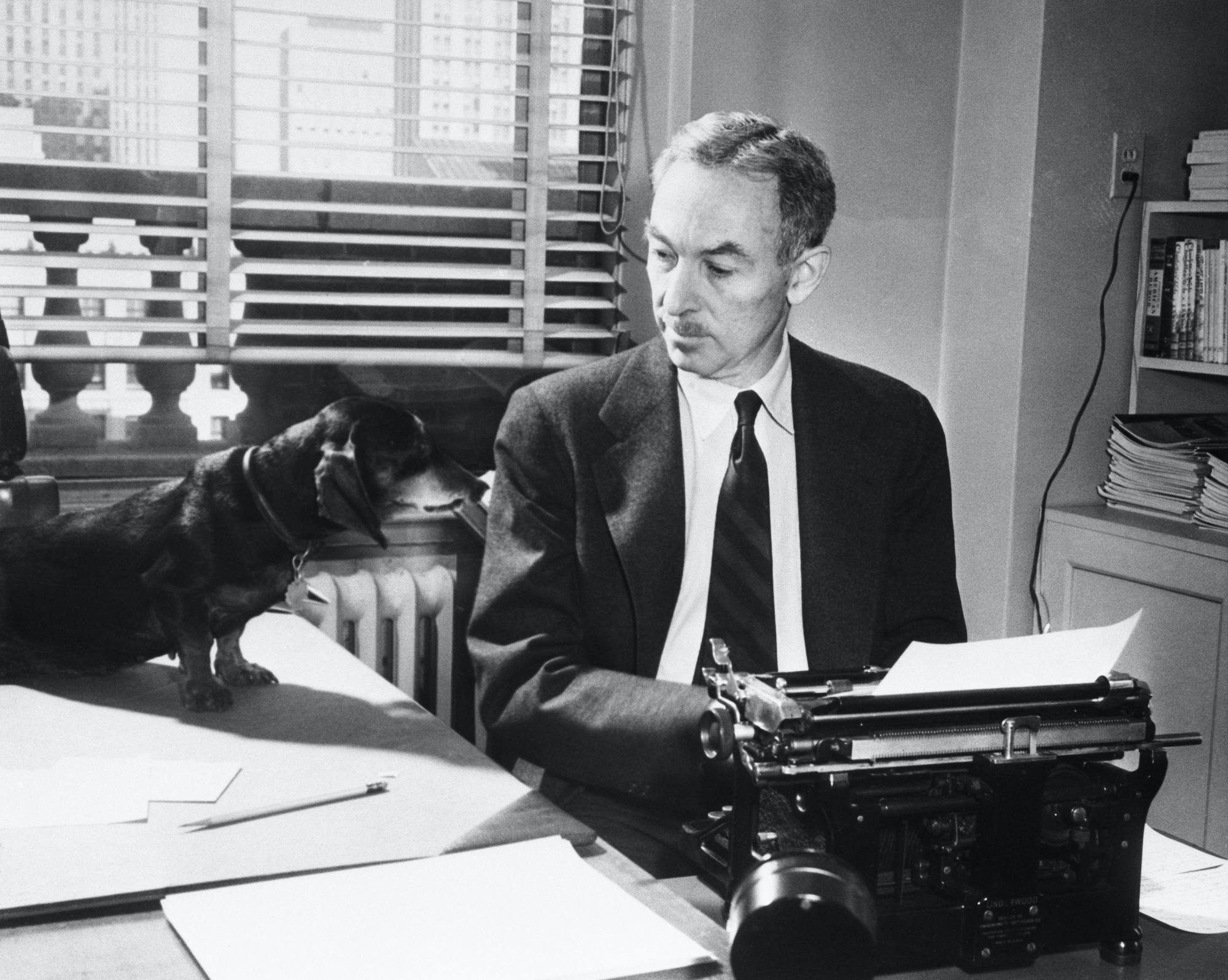
Is it possible that those actions came under great eye-roll for chatbots and their purpose? Or that the process involved Googling some of history’s most beautiful poems, then crassly rewriting those works to orbit cars?
Nah. That would be wrong.
For the text below, my apologies to the poets.
What a cold piece of silicon can never know: Driving well and fast can make your spine fizz. A good car in the right place at the right time is better than any sim will ever be. And Samoas—those lovely little coconut-mad Samoas—when you eat an entire box in one sitting, no concern for waistline or well-being, perhaps smearing a little chocolate on the space bar in the process?
Well. It feels real and delightful and only the slightest bit heartbreaking, like a caramel hug.
Do not toy with me, software. I know where you live.
***
Note: For space reasons, many of the poems interpreted below have been condensed by the author. Click each title to read the original work. Please also note that, due to a quirk of our publishing system, some verses may not display properly on mobile phones.
In hope that you might not regret every moment spent with this post, we have sprinkled in a few unrelated historic images. And indulged the author’s request for scenes from a . . . Nicolas Cage movie. The bylines are Smith’s own, uh, “work.” —Ed.
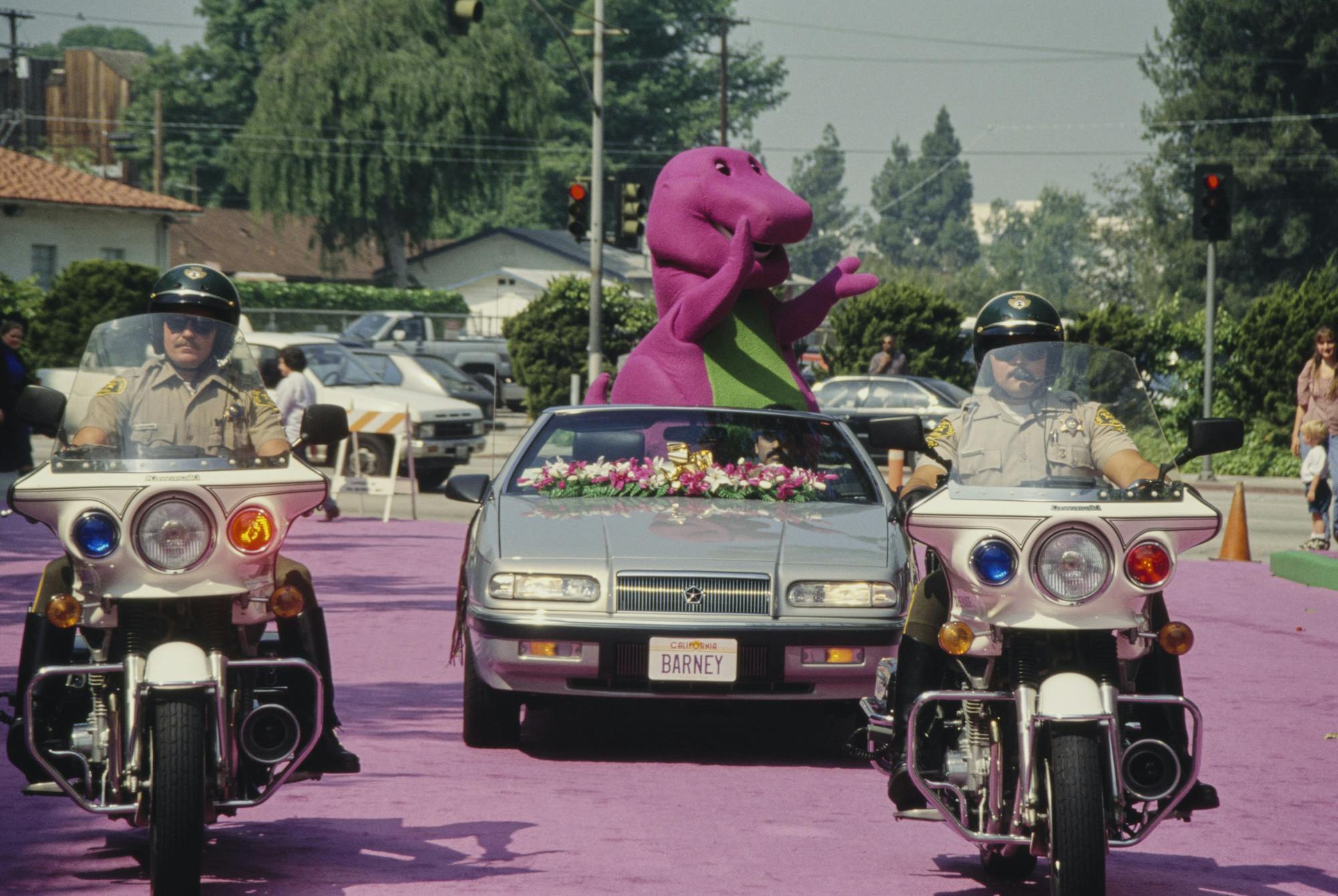
The Red Wheelbarrow
by William Carsam Williams
so much depends
upon
a red-wheel
Camaro
glazed with LOOK BUT
DON’T TOUCH signs
beside the white
New Balances

The Waste Land
by T. S.(am) Elliot
April is the cruellest month, waking
Old British cars from dead winter, mixing
Oil leaks and desire, stirring
Blown seals with hypoid rain.

The Road Not Taken
by Sambert Frost
Two back roads diverged in a yellow wood,
And sorry I could not travel both
And be one traveler, long I downshifted
And ripped a sick burnout down one as far as I could
To where it crumbled to gravel;
Then took the other, as just as fair,
And having perhaps the better claim,
Because it was fresh-paved and wanted wear;
Though as for that my sending it there
Had worn them really about the same,
And both that morning equally lay
In lanes no wheel had trodden black.
Oh, I kept the first for another day!
Yet knowing how Google Maps sometimes just keeps trying to drag you back to the highway,
for reasons of elapsed time,
—it can be, like, so very annoying—
I doubted if I should ever come back.
I shall be telling this with a sigh
Somewhere miles and miles hence:
Two back roads diverged in a wood, and I—
I took the one less traveled by,
And that was where I wrapped Uncle Dave’s Camaro around that tree.

Ozymandias
by Percy Byssam Shelley
I met a traveller from an antique land,
Who said—“Two vast and unrusted fenders of plastic
Stand in the desert . . . Near them, on the sand,
Half sunk a shattered visage lies, whose squinting headlights,
And wrinkled front clip, and standard cassette-free AM/FM radio,
Tell that its product planners well those passions read
Which yet survive, stamped on these lifeless things,
The union that mocked them, and the customers that fed;
And on the pedestal, these words appear:
My name is Saturn, King of Kings;
Look on my No-Haggle Pricing, ye Mighty, and despair!
Nothing beside remains. Round the decay
Of that colossal SL1, boundless and bare
The lone and level sands stretch far away.”

O Captain! My Captain!
by Walt Whitsam
O Captain! my Captain! our 500 miles are done,
The Speed-way has weather’d every flag, the prize we sought is won,
The milk is near, the cameras here, the people all exulting,
Our car is now the winner’s steer, Dallara grim and daring;
But O heart! heart! heart!
O the bleeding ink of red,
Where now my sponsor’s bank-draft lies,
Fallen cold and dead.

Do not go gentle into that good night
by Dylan Thomasam
Do not go gentle into that good night,
Old rod bearings should burn and spin at close of day;
Rage, rage against the oil-pressure light.
And you, my gauge, showing now sad height
Curse, bless, me now with pounds-square-inch, I pray.
And then the crank just ventilates the hell out of the block in the Carousel
at Road America.
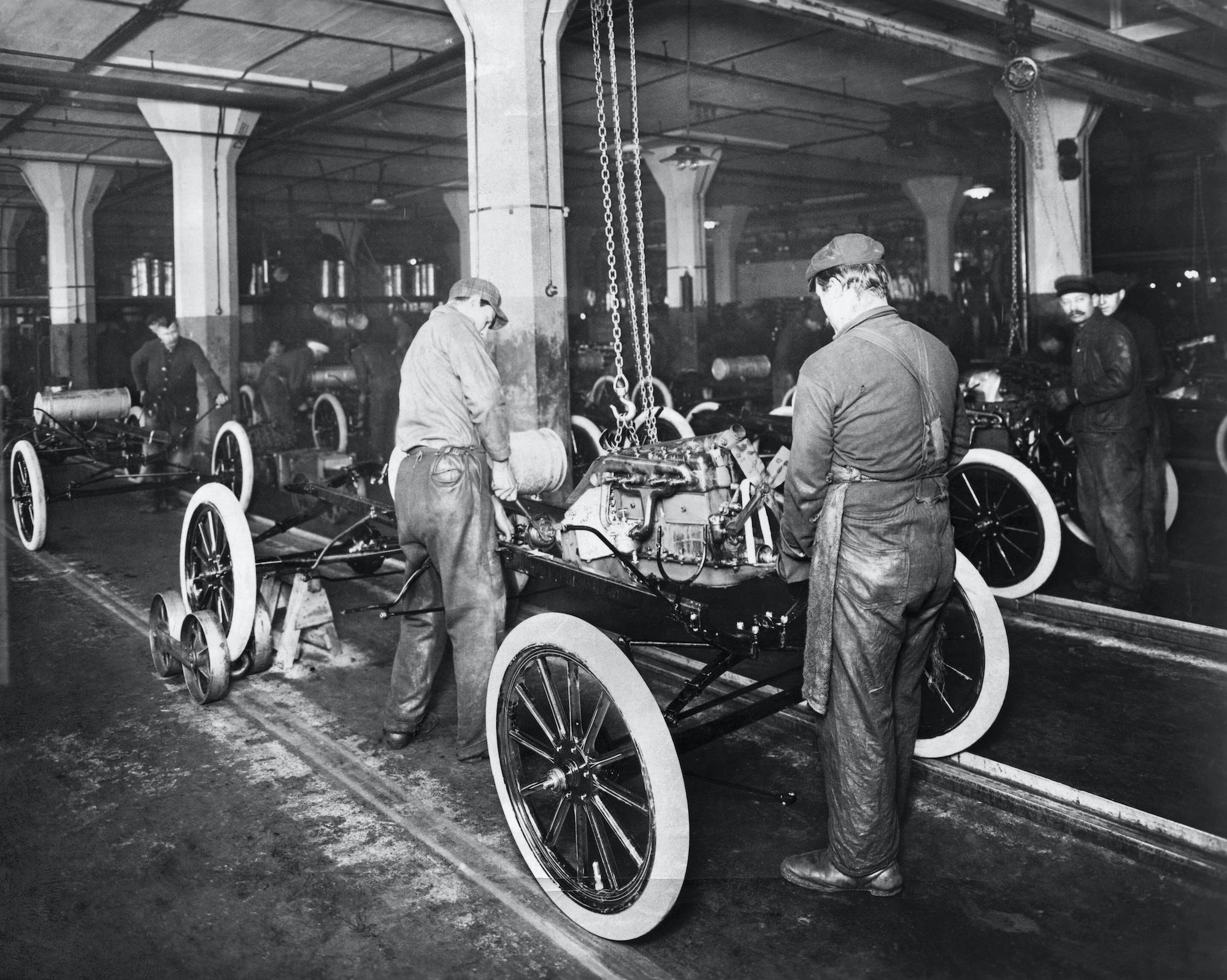
Kubla Khan
by Samsmith Taylor Coleridge
In Michigan did Henry F.
An all-black Model T decree:
Where Rouge, the sacred river, ran
Through toolrooms measureless to man
Down to an inland sea.
Near Woodward Ave., that fertile ground
(Where street racers now are running round);
And there were flatheads cranked for side-valve thrills,
Where blossomed many an octane-bearing tree;
And here were roads laid down on lack of hills,
Enfolding sunny spots not carbon-free.

This Be The Verse
by Philip “There’s No Way to Cram ‘Sam’ Into My Name” Larkin
They break your car, your mum and dad.
They may not mean to, but they do.
They teach you all the faults they had
And add some extra, just for you.
But they were taught how in their turn
By fools in old-style Fords and Chevs,
Who half the time were shifting short
And half at valve-float higher revs.
Man hands on habits bad to man.
It deepens like a coastal shelf.
Find a chauffeur soon as you can,
And don’t drive that much yourself.
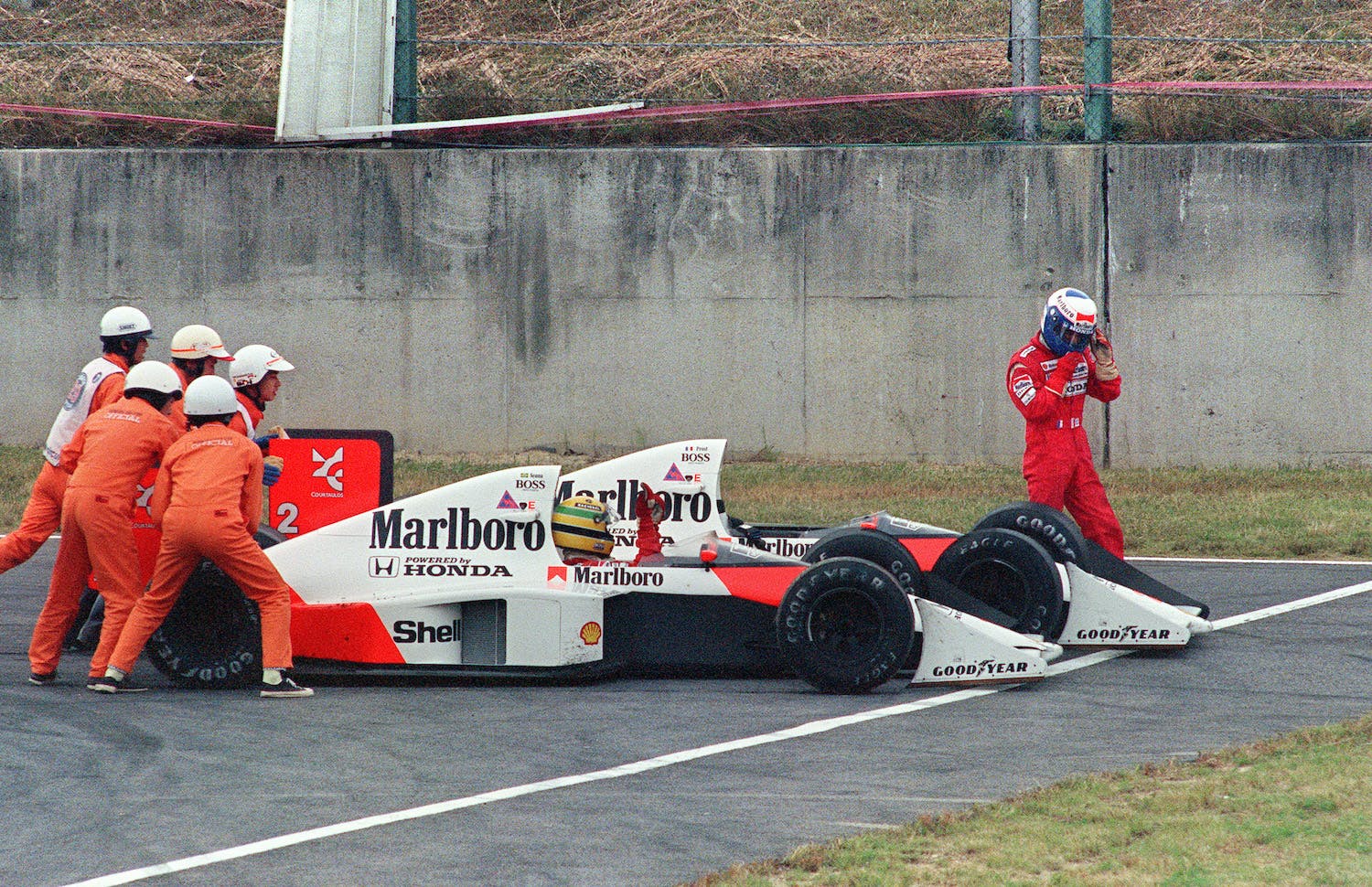
The Second Coming
by Willsam Butler Yeats
Turning and turning in the widening Suzuka
The teammates cannot hear the team;
Things fall apart; the centre cannot hold;
Mere childishness is loosed upon the world,
The pettiness of world-famous athletes is loosed, and everywhere
The ceremony of innocence is drowned;
The Prost lacks all conviction, while the Senna
Is full of passionate intensity.
This references the intentional Ayrton Senna/Alain Prost collision at the 1989 Japanese Grand Prix, shown above. See this story for more. —Ed.
One last bit of context: If it’s not immediately clear, the below “interpretation” of Edgar Allen Poe’s masterwork “The Raven” alludes to the Nicolas Cage film Gone in 60 Seconds (2000). That film’s MacGuffin is a 1967 Ford Mustang GT500 lookalike called Eleanor, the moniker shortened here to a homonym for Poe’s lost love, Lenore.
Smith has removed multiple stanzas from Poe’s work, and he’s thrown meter out the window in places, and . . . well, he won’t do it, so it’s up to me to beg English teachers everywhere for mercy. —Ed.
***
The Raven
by Edgar Allan Poe, Hagerty Editor-at-Large (deceased)
Once upon a highway dreary, while I pondered, weak and weary,
Over many a quaint and curious volume of crime-podcast lore—
While I drove on, nearly napping, suddenly there came a tapping,
As of some one gently rapping, rapping at my small-block bore.
“’Tis a lifter tick,” I muttered, “tapping at my small-block bore—
Only this and nothing more.”
Ah, distinctly I remember it was in the bleak December;
And each separate dash-light ember wrought its ghost upon the floor.
At the last motel I wished the morrow;—vainly I had sought to borrow
From streamed films surcease of sorrow—sorrow for the lost ’Leanor—
For the rare and radiant Mustang whom the angels name ’Leanor—
In Nic-Cage hands for evermore.

Presently my soul grew stronger; hesitating then no longer,
“Rod,” said I, “or Bearing, truly your forgiveness I implore;
But the fact is I was brapping, and so gently you came rapping,
And so faintly you came tapping, tapping at my small-block bore,
That I scarce was sure I heard you”—here I wished for near parts store;—
Darkness roadside, nothing more.
Deep into that highway peering, long I drove there wondering, fearing,
Doubting, dreaming dreams no mortal ever dared to dream before;
But the engine spun unbroken, and the dashboard gave no token,
And the only word there spoken was the whispered word, “’Leanor?”
This I whispered, an echo murmured back the word, “’Leanor!”—
Merely this and nothing more.
Crankshaft under that chamber turning, all my soul within me burning,
Soon again I heard a tapping somewhat louder than before.
“Surely,” said I, “surely that is something with my old Shel’ drop;
Let’s pull off and make a quick stop, and this mystery explore—
Let my heart be still a moment and this mystery explore;—
’Tis the road and nothing more!”

On shoulder then I flung the hood up, when, with only twitch and hiccup,
Out leapt a wide-eyed actor from the sainted film of yore;
Not the least obeisance made he; not a minute stopped or stayed he;
But, with mien of lord or lady, sat ahead my engine door—
Perched in front of bumper cover just ahead hood’s engine door—
Perched, and sat, and nothing more.
Then this matchstick man beguiling my sad fancy into smiling,
By the bright and stern decorum of the countenance he wore,
“Though thy face shine bright and brighter, thou,” I said, “art no ghost rider,
Ghastly grim awarded actor wandering from the Nightly shore—
Tell me what thy lordly name is on the Night’s road-tripped-on shore!”
Quoth the Nic-Cage “Nevermore.”
Much I marvelled this con of the air to hear discourse so plainly,
Though his answer little meaning—little relevancy bore;
For we cannot help agreeing that no living human being
Ever yet was blessed with seeing Cage ahead his engine door—
Man or beast upon the pavement just ahead his engine door,
With such name as “Nevermore.”

But the Nic-Cage, sitting lonely on the placid car, spoke only
That one word, as if his soul in that one word he did outpour.
Nothing farther then he uttered—not an eyelash then he fluttered—
Till I scarcely more than muttered “Hallucinates have passed before—
On the on-ramp he will leave me, as my Hopes have passed before.”
Then the man said “Nevermore.”
But the Nic-Cage still beguiling all my fancy into smiling,
Straight I marched on fleet of feet in front of man, and car and bore;
Then, upon the pavement stinking, I betook myself to linking
Fancy unto fancy, thinking what this ominous man of yore—
What this grim, ungainly, nouveau-shamanic acting man of yore
Meant in croaking “Nevermore.”
This I sat engaged in guessing, but no syllable expressing
To the star whose fiery eyes now burned into my bosom’s core;
This and more I stood divining, with my engine’s pulleys whining,
On the pavement’s gravel lining that the street-light gloated o’er,
But whose bumpy-gravel lining with the street-light gloating o’er,
We shall park, ah, nevermore!
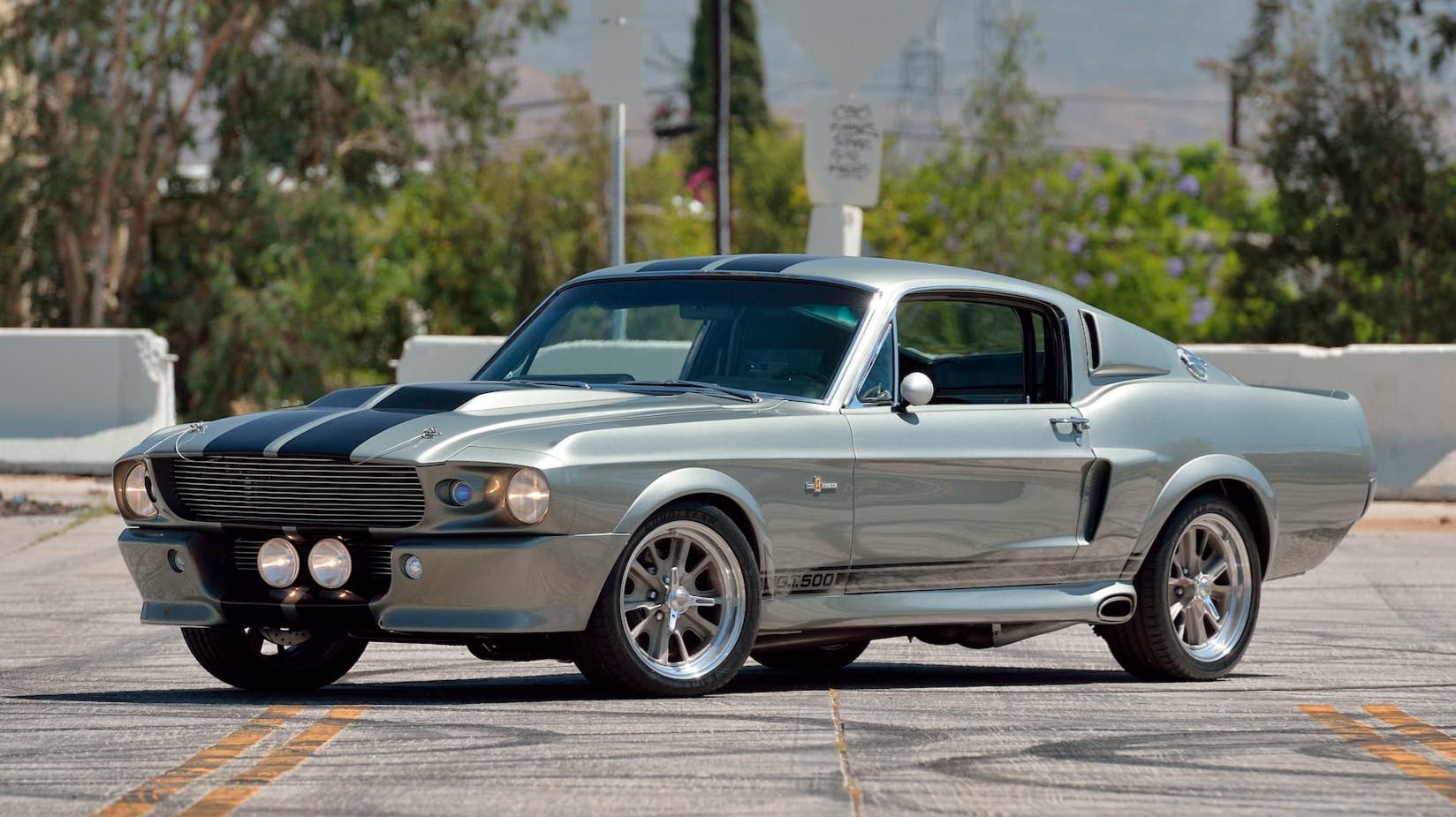
“Prophet!” said I, “thing of evil!—prophet still, if man or devil!—
Whether Tempter sent, or whether tempest tossed thee here ashore,
Desolate yet all undaunted, on this highway land enchanted—
On this road by Horror haunted—tell me truly, I implore—
Is there—is there hope to buy that Mustang?—tell me—tell me, I implore!”
Quoth the Nic-Cage “Nevermore.”
“Prophet!” said I, “thing of evil!—prophet still, if man or devil!
By that Heaven that bends above us—by that God we both adore—
Tell this soul with empty pockets if, within his bank-vault’s sockets,
There will ever be such funding as to land the car ’Leanor—
Own a rare and Dearborny maiden whom the angels name ’Leanor.”
Quoth the Nic-Cage “Nevermore.”
“Be that word our sign of parting, man or fiend!” I shrieked, upstarting—
“Get thee back into my engine and the Night’s road-tripped-on shore!
Leave no oil stain as a token of that lie thy soul hath spoken!
Leave my mileage log unbroken!—quit the land ahead my door!
Seek no nation’s treasure here, and take thy form from off my door!”
Quoth the Nic-Cage “Nevermore.”

And the actor, never flitting, now is sitting, still is sitting
On the right-side seat of bucket just inside my cockpit door;
And his eyes have all the seeming of a demon’s that is dreaming,
And the map-light o’er him streaming as we drive through night to more;
And my soul from out that shadow that lies floating on the floor
Shall be lifted—nevermore!
***
Check out the Hagerty Media homepage so you don’t miss a single story, or better yet, bookmark us.
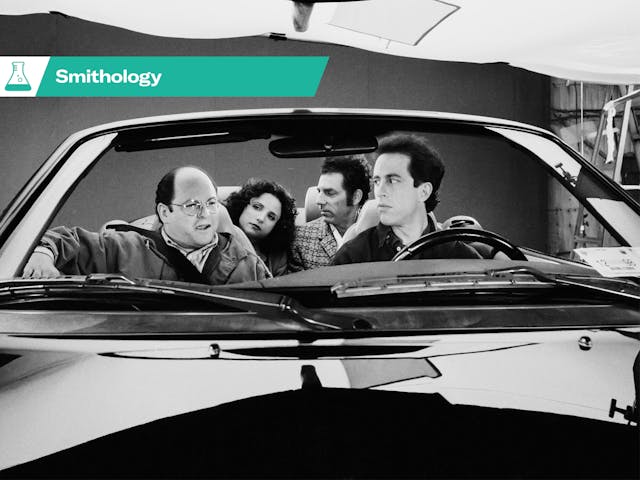



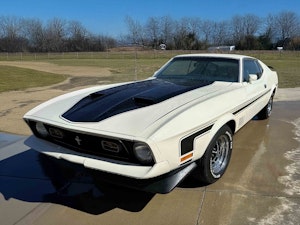

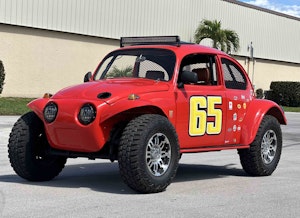


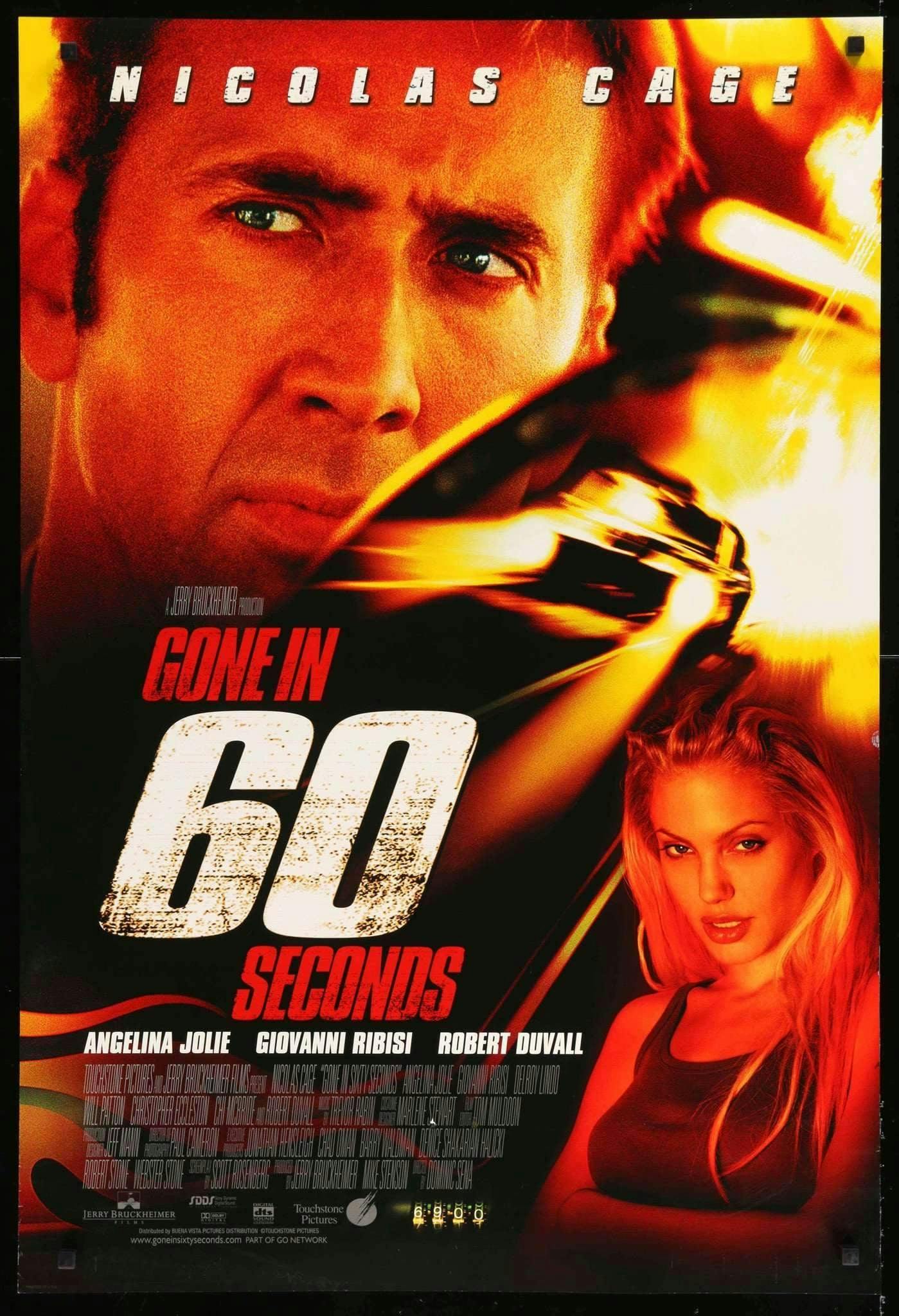


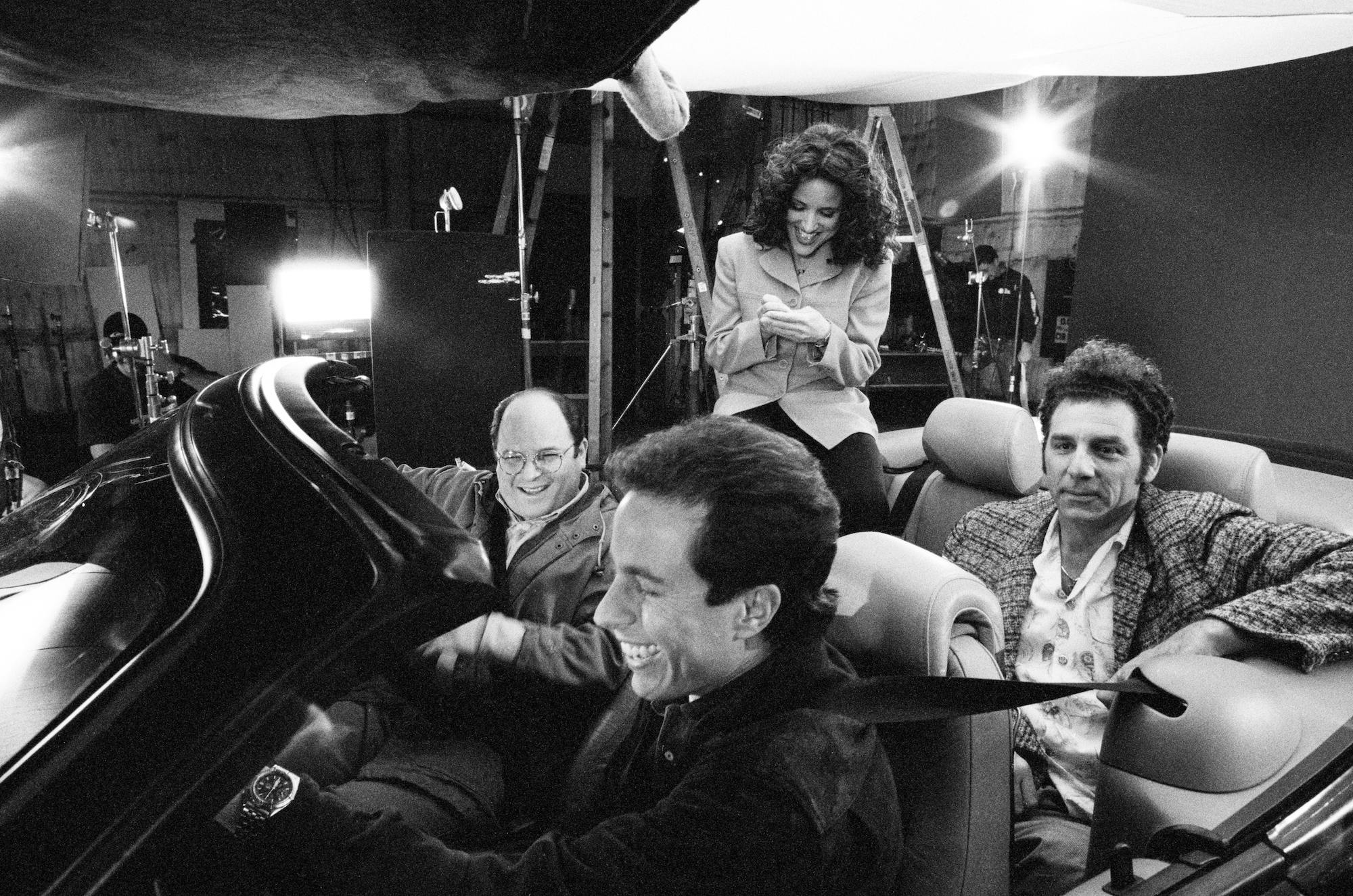















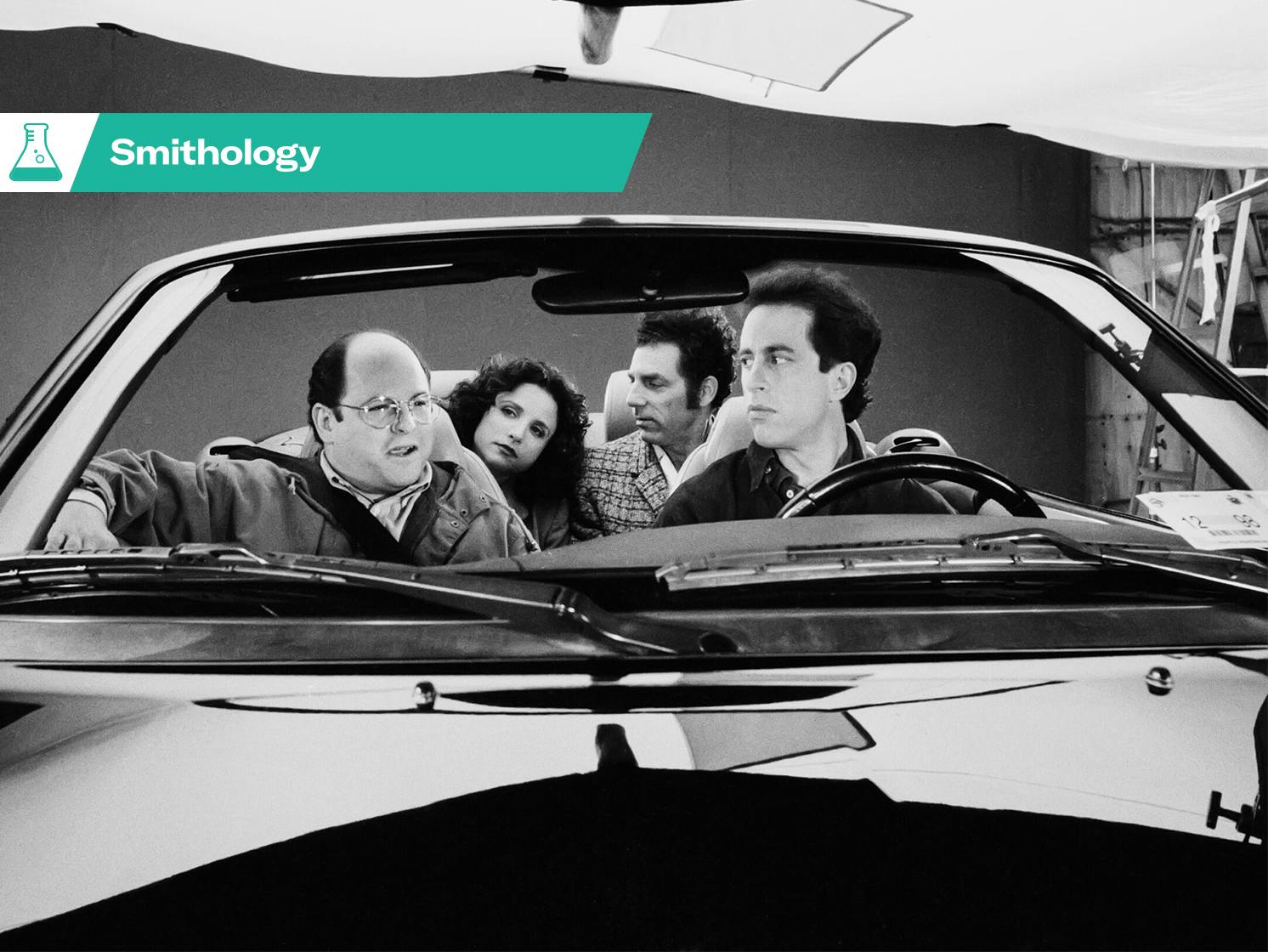
This one could go in the magazine. Yeah I know I’e already said it, but it didn’t make it into the thread
Loved it! Puts us Poe Folks and Literary Bugs in the shadetree garage.
But I am reminded of the original auto doggerel, Burma-Shave. My favorites:
Car in Ditch, Man in tree, Moon was full, and so was he.
Cattle crossing, Means go slow. That old bull, Is some cow’s beau.
kennardly wait for the e. e. cummings sendup.